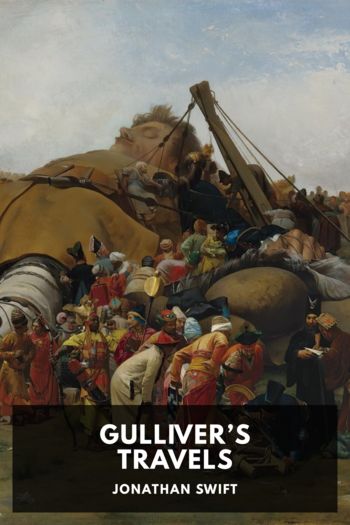The Assassins by Alan Bardos (best novels in english txt) 📗

- Author: Alan Bardos
Book online «The Assassins by Alan Bardos (best novels in english txt) 📗». Author Alan Bardos
'She is a relative, helping me while I look for work,' Nedjo said. He'd had to tell Vila something during the meal as he didn't want to dishonour the girl’s reputation.
'I'm sure she was very helpful. I take it you didn't find work in Tuzla. You're a printer aren’t you?'
'That’s right. Hopefully, I'll have more luck in Sarajevo,' Nedjo said. The detective didn't look impressed by his lack of concern.
'I'm sure your good father will smarten your ideas up,' Vila said.
That was the only black cloud on the horizon, Nedjo thought. His father would demand to know what he'd been doing with himself and start pontificating about the wonders of their Austrian rulers.
'So, you were telling me you've been away.'
'Yes, I've been living in Belgrade,' Nedjo answered, glad not to have to think about the coming reunion with his father.
'Belgrade?' Something caught Vila's eye before he could continue. 'Who's that fellow over there who keeps staring?' the detective asked, pointing across the carriage.
Nedjo looked around with a start. Gavrilo was sitting behind him, in a different compartment, with Trifko. They were both looking at him very intensely.
'That is Gavrilo Princip, a friend from Belgrade.' He was so surprised to see Gavrilo that he blurted out his real name.
'What were you doing in Belgrade, exactly?' Vila glanced over Nedjo for something incriminating. Not seeing anything, he seemed satisfied that Nedjo wasn't a criminal.
'Have you seen my father recently?' Nedjo asked, trying to deflect attention.
'I saw him yesterday, as it happens. He and your family are well,' Vila answered.
'I'm glad.' Much to Nedjo's disgust, his father had got very friendly with the police so that he could get a licence to open his cafe.
'We're all very excited by His Imperial and Royal Highness Archduke Franz Ferdinand’s visit to Sarajevo,' Vila said.
'I hear it is to be soon?' Nedjo enquired.
'The 28th of June.'
'Vidovdan? Our most sacred day!' Nedjo was furious. He couldn’t believe that the tyrant was coming on the day the Serb people remembered the great defeat by the Turks.
'Yes, he does us great honour,' Vila said solemnly. Nedjo thought that he would bestow his own honour on the Heir, now that he knew the exact date on which he would take his revenge.
Chapter 11
A court lackey showed Franz Ferdinand into the billiard room at Schonbrunn, the Emperor's summer residence, to await his audience with Franz Josef. A great chandelier shone above the billiard table, which was placed in the centre of the room, no doubt to help the Emperor's petitioners pass the time while they waited. He glanced around at the familiar paintings and white-gold rococo design on the walls.
The Archduke was agitated; he disliked having to come here, cap in hand, for the sake of protocol. He ignored the billiard table and paced across the block wooden floor in military step, to calm himself before his audience with the Emperor.
He glanced at a small wall clock in the corner of the room, without registering the time. Franz Ferdinand was impatient to get this ordeal over with, but the Emperor would not disturb his routine for anyone, least of all for his nephew, the Heir Apparent.
Emperor Franz Josef described himself as the first public servant of the state. He lived a solitary and ritualistic life, repressed and self disciplined, working tirelessly in the service of the Monarchy, from four in the morning until eight at night. He even took his meals at his desk. Franz Josef wasn't an intellectual, but he was certainly meticulous and thorough in his duties, with a reverence and devotion to detail. Franz Ferdinand remembered that the Emperor's wife, Empress Sissi, had said that Franz Josef had the soul of a drill sergeant.
In his constant battle to maintain order in his Empire, routine and protocol were the Emperor's guiding lights, taking the place of innovation and change. He’d told Franz Ferdinand that a dynasty without ritual or protocol was a dynasty without meaning or defence.
Franz Josef had been Emperor for over sixty years, holding the Empire together through some of its most turbulent times, but he had only slowed the decline. He and his ‘cabinet of mummies’ had lost territory to Italy, suffered humiliating defeats to Prussia and made concessions to Hungary, resulting in the Habsburg Empire being split in half and recreated as a dual monarchy. To Franz Ferdinand’s abhorrence, Hungary now governed the eastern half and Austria the western. Both had separate parliaments, with financial, military, and foreign policy administered by three joint ministries. It was an abnormal and diseased condition, in Franz Ferdinand’s opinion, and the confusion and conflict this joint system caused was the single greatest threat to the stability of the realm.
The Archduke stopped pacing to study the painting that covered the central wall of the room. It depicted the first investment ceremony of the order of Maria Theresa in 1758. It was one of the Empire’s highest military honours, which had been founded to celebrate victory over Fredrick the Great. The room had two other paintings commissioned by the Emperor to commemorate the centenary of that event and to re-live the past glory of Maria Theresa’s reign. Franz Ferdinand felt the whole Monarchy ran on nostalgia. It was time for a new approach.
He was determined to restore everything that the iron House of Habsburg had lost. He'd been systematic in his preparations for taking the throne, building up a personal intelligence network and a shadow cabinet, which kept him better informed than even the Emperor himself. The one overriding message to come from his network was that the situation was getting worse.
The rise of nationalism was seriously threatening the internal and external security of the Austro-Hungarian





Comments (0)